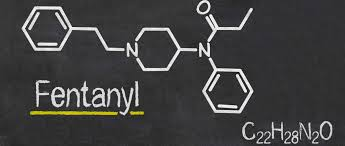Fentanyl Addiction Symptoms & Withdrawal
Immediate
Placement Available at our Top-Rated Treatment Centers.
Please call us at (855) 410-4488. We work
with most major insurance providers and offer flexible payment
options!
Atrium Addiction Care offers a variety of treatment choices and programs for individuals struggling with drug or alcohol addiction. Our inpatient treatment programs are designed for those who have more severe substance use problems and require 24-hour care. We admit both voluntary and involuntary patients.

Fentanyl is a synthetic opioid pain reliever that has been used for decades to treat severe pain, such as in cancer patients or those undergoing surgery. However, fentanyl has also gained notoriety as a highly addictive drug that can cause serious health complications and even death if abused.
Addiction to fentanyl can be difficult to recognize, especially since it often begins with prescription use before progressing to illicit forms of the drug.
Recognizing the symptoms of fentanyl addiction and understanding the withdrawal process is vital for individuals who may be struggling with substance abuse and seeking help through Atrium Addiction Care services.This article will explore the signs of fentanyl addiction and what individuals can expect during withdrawal from this powerful drug.
What Is Fentanyl?
Fentanyl is a synthetic opioid that has been used as an analgesic since the 1960s. It is typically prescribed for patients who are experiencing severe pain, such as that associated with cancer or following major surgery.
Fentanyl is also available in various formulations, including patches and lozenges, which can be administered transdermally or orally. Despite its medical uses, fentanyl abuse has become increasingly common due to its high potency compared to other opioids.
In fact, fentanyl is estimated to be up to 100 times more potent than morphine and approximately 50 times more potent than heroin. This means that even small amounts of the drug can cause significant respiratory depression and potentially lethal overdose.
The dangers of fentanyl misuse extend beyond overdose risk. Long-term use of the drug can lead to physical dependence and addiction, making it difficult for individuals to stop using without professional help.
Moreover, because illicitly manufactured fentanyl may be mixed with other substances like benzodiazepines or cocaine, fentanyl users may not know what they are taking, increasing their risk of adverse effects or overdose.
Signs And Symptoms Of Fentanyl Addiction
As discussed in the previous section, fentanyl is a powerful synthetic opioid that can cause addiction and dependence. Early detection of this addiction is crucial to prevent severe consequences. However, recognizing an addiction to synthetic opioid pain medication fentanyl may be difficult due to its subtlety.
One way to identify addiction is through behavioral changes. Those who are addicted to fentanyl may experience mood swings, irritability, anxiety, or depression. They may also have difficulty concentrating or making decisions and may withdraw from social activities they once enjoyed. These changes in behavior can occur gradually over time and often go unnoticed by loved ones until they become severe.
Physical symptoms such as constricted pupils, nausea, vomiting, constipation, and slowed breathing are common with fentanyl addiction. Moreover, individuals who misuse fentanyl are at high risk for overdosing which can lead to respiratory failure and even death. It is imperative that those exhibiting these physical signs receive medical attention immediately.
Family intervention plays a vital role in helping someone suffering from an abuse fentanyl an addiction seek treatment before it’s too late. Family members should educate themselves on the warning signs of drug abuse and talk openly about their concerns with their loved one. Encouraging them to seek professional help will increase the chances of successful recovery.
By providing support during this challenging process, families can aid in breaking the cycle of addiction and promoting mental wellbeing for all involved parties.
Psychological And Physical Effects Of Fentanyl Addiction

The long-term effects of fentanyl addiction can be devastating, both physically and mentally. Individuals who use this drug may experience a range of symptoms that include depression, anxiety, mood swings, insomnia, and chronic pain. These psychological effects can impact relationships with family members and friends, leading to isolation and social withdrawal.
Co-occurring disorders are common in individuals who struggle with fentanyl addiction. Substance abuse often occurs alongside mental health issues such as anxiety or depression. The combination of fentanyl withdrawal treatment both of these conditions can make recovery even more challenging without proper treatment.
Relapse prevention is an essential aspect of recovery from fentanyl addiction. Coping skills must be developed to help individuals manage triggers and cravings effectively. To prevent relapse, those in recovery must have access to resources that provide ongoing support for their physical and emotional needs. Counseling sessions that address co-occurring disorders should also be made available to ensure lasting recovery success.
While the road to healing from fentanyl addiction may be difficult at times, it is possible with the right tools and support network in place.
Withdrawal Symptoms And Timeline
Withdrawal from fentanyl addiction can be a difficult and uncomfortable experience. The severity of withdrawal symptoms varies depending on the individual's history of drug use, frequency of fentanyl use disorder used, and dosage. Withdrawal management is crucial in helping individuals overcome their dependence on fentanyl.
The timeline for withdrawal symptoms typically begins within 12 hours after the last dose and peaks between days two to four. Symptoms may include anxiety, restlessness, muscle pain, nausea, vomiting, diarrhea, sweating, chills, insomnia, and cravings.
Coping strategies such as deep breathing exercises or meditation can help manage these physical and emotional symptoms. Moreover, support systems like therapy sessions or group counseling can provide guidance through this challenging phase.
Relapse prevention is also critical during this time. Individuals undergoing withdrawal should avoid triggers that could lead to relapse such as people or places associated with drug abuse.
Aftercare planning plays an important role in maintaining long-term recovery goals by creating a plan for continued support post-treatment. Addiction care centers offer a range of resources including outpatient services like counseling to ensure patients receive adequate care even after leaving residential treatment facilities.
In summary, managing withdrawal symptoms requires proper medical supervision and access to coping mechanisms that address both physical and psychological effects of addiction. Relapse prevention techniques coupled with strong support systems can increase chances of successful recovery outcomes while aftercare planning ensures ongoing success beyond initial phases of treatment.
Treatment Options For Fentanyl Addiction
The withdrawal symptoms of fentanyl addiction can be quite challenging to overcome. The timeline for these symptoms can vary based on the individual's usage history and other factors such as age, weight, and genetic predispositions. However, common symptoms include nausea, vomiting, diarrhea, muscle aches and pains, anxiety, depression, insomnia or hypersomnia, irritability and restlessness.
When seeking treatment for fentanyl addiction, there are several options available. Inpatient programs provide 24-hour medical care in a residential setting where individuals receive intensive therapy and support. Outpatient programs offer similar services but allow patients to live at home while attending therapeutic sessions regularly throughout the week. Medication-assisted treatments may also be prescribed to help manage cravings and reduce withdrawal symptoms.
Therapy options for fentanyl addiction include cognitive-behavioral therapy (CBT), which helps individuals identify negative thought patterns that lead to drug use and develop coping strategies; contingency management (CM), which rewards positive behavior with incentives such as vouchers or prizes; family therapy that addresses communication issues between loved ones affected by addiction; and group counseling provided through support groups like Narcotics Anonymous (NA).
Aftercare planning is crucial once an individual completes their treatment program so they can maintain sobriety long-term with continued support from healthcare professionals or peers in recovery communities.
Atrium Addiction Care's Approach To Fentanyl Addiction Recovery

Atrium Addiction Care's Approach to Fentanyl Addiction Recovery is a comprehensive program designed to help individuals struggling with fentanyl addiction get back on track towards healing.
At Atrium, we believe that every person's journey towards recovery is unique and requires personalized therapy tailored to their specific needs. Our team of experts works closely with each patient to create a customized treatment plan that combines evidence-based practices with holistic healing techniques.
Holistic healing plays an essential role in our approach as it recognizes the interconnectedness of the mind, body, and spirit. We offer various therapies such as yoga, meditation, acupuncture, and massage therapy that promote physical and emotional wellness while helping patients manage stress and anxiety.
Additionally, our relapse prevention programs equip patients with valuable tools and strategies to prevent future relapses. We understand that recovery doesn't end when someone completes their treatment plan; hence we provide aftercare support services for continued success post-treatment.
Our aftercare support includes ongoing counseling, group therapy sessions, alumni programs, employment assistance, and community resources. Family involvement also plays a crucial role in the recovery process; thus, we encourage family members' participation in therapy sessions to foster healthy communication and rebuild relationships strained by addiction.
Seeking Help For Fentanyl Addiction
- Fentanyl addiction requires a comprehensive approach that involves both medical and psychosocial care.
- Treatment options for fentanyl addiction may include medication-assisted therapy, psychotherapy, and lifestyle modifications.
- Recovery programs, such as those offered by Atrium Addiction Care, provide comprehensive services that support individuals in their recovery process.
- Support groups are an important part of recovery, providing a safe and supportive environment for individuals to share their experiences and receive support from others.
- Peer support programs, such as Narcotics Anonymous, provide a forum for individuals to share their stories and offer support and encouragement to others in recovery.
- Online support groups and forums also provide a platform for individuals to connect and share their stories, experiences, and successes in their recovery journeys.
Treatment Options
Fentanyl addiction is a serious issue that requires immediate treatment. The symptoms of this addiction are devastating, and the withdrawal process can be incredibly difficult. Seeking help for fentanyl addiction is crucial to overcoming it.
There are several different treatment options available, including inpatient vs outpatient care, medication-assisted therapy, behavioral therapy, support groups, and holistic approaches. Inpatient vs outpatient care is one option for those seeking help with their fentanyl addiction. Inpatient care provides patients with 24/7 medical supervision and intensive therapy sessions. Outpatient care allows individuals to receive similar treatments while still being able to maintain some level of normalcy in their daily lives.
Medication-assisted therapy (MAT) involves using FDA-approved medications alongside counseling and other therapies to minimize cravings and manage withdrawal symptoms. Behavioral therapy is another important aspect of treating fentanyl addiction. This type of therapy helps individuals identify the root causes and risk factors of their addiction and develop healthier coping mechanisms to deal with stressors or triggers that may lead to drug use.
Support groups such as Narcotics Anonymous offer a safe space for individuals struggling with addiction to share their experiences and connect with others going through similar struggles. Holistic approaches such as yoga or meditation may also be incorporated into a comprehensive treatment plan.
In summary, there are various ways to seek help for fentanyl addiction, including inpatient rehab vs outpatient care, medication-assisted therapy, behavioral therapy, support groups, and holistic approaches. Recovery from fentanyl addiction takes time and effort but is possible with proper treatment and support systems in place. It's essential to reach out for professional help when dealing with any form of substance abuse disorder.
Recovery Programs
In addition to the treatment options mentioned earlier, recovery programs play a vital role in helping individuals overcome fentanyl addiction. Recovery programs provide personalized care and support for those struggling with addiction by offering various services such as relapse prevention and aftercare planning.
These programs are designed to help patients achieve long-term success in their recovery journey. Holistic approaches are often incorporated into recovery programs to address the physical, emotional, and spiritual aspects of an individual's life.
This approach may include practices like acupuncture, massage therapy, or fitness classes that promote overall wellness while also addressing addiction-related issues.
Holistic treatments can complement traditional therapies and medication-assisted treatments to create a well-rounded plan tailored to each patient's needs. Support groups also form a critical component of most recovery programs.
Such groups offer a safe space for individuals going through similar struggles to share experiences and connect with others who understand what they're going through. Peer support is especially helpful when trying to maintain sobriety post-treatment since it provides accountability and encouragement from people who have been there before.
By utilizing these resources provided by recovery programs and committing themselves fully to the process, individuals can successfully overcome their fentanyl addictions.
Support Groups
Support groups are a crucial component of seeking help for fentanyl addiction. These groups offer individuals the opportunity to connect with others who have gone through similar struggles and provide them with the necessary peer support they need to maintain sobriety. Support groups can take various forms, including online groups or in-person meetings, depending on an individual's preference and needs.
n addition to providing peer support, support groups also serve as a platform for sharing coping mechanisms that have worked for members in their journey towards recovery. This exchange of information is vital since it helps individuals develop new strategies to overcome triggers and urges associated with addiction.
Through these sessions, participants learn how to set realistic goals, manage stressors, and identify warning signs of relapse. For those who require additional therapy options beyond support groups, there are many available treatment programs that incorporate group counseling sessions into their services. These programs allow individuals to receive professional guidance while still benefiting from the supportive environment created by peers going through similar experiences.
Ultimately, utilizing support groups provides a critical element in the long-term success of overcoming fentanyl addiction alongside other treatment modalities such as medication-assisted treatments and holistic approaches.
Conclusion
Fentanyl is a powerful synthetic opioid that can lead to addiction with long-term use. Signs of fentanyl addiction include physical and behavioral changes, while psychological effects may cause anxiety, depression, or paranoia.
Withdrawal symptoms from fentanyl use are uncomfortable and potentially dangerous without proper medical care. Treatment options for fentanyl addiction may include medication-assisted treatment, counseling, or residential rehabilitation programs.
At Atrium Addiction Care, we offer individualized treatment plans for those struggling with fentanyl addiction. Our approach includes evidence-based therapies such as cognitive-behavioral therapy and mindfulness practices.
We also provide ongoing support and resources for clients during their recovery process. Seeking help for fentanyl addiction is crucial in preventing overdose or other negative consequences. Atrium Addiction Care strives to empower individuals on their journey towards lasting recovery from substance use disorder and abuse disorders.
